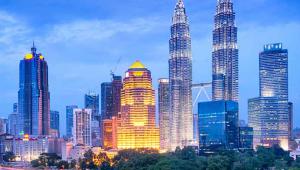The Washington-based lender said Thailand’s growth is expected to improve to 3% this year and 3.2% in 2017, signalling a modest rebound from the continuing uncertainty sparked by the country’s 2014 military coup.
“Strong fundamentals enhance Thailand’s resilience in the face of external and internal challenges,” a fund statement said.
“High international reserves, a sizeable current account surplus and relatively limited foreign debt helped cushion shocks.”
Moderate public debt and strong policymaking institutions provided additional layers of protection.
However, the fund noted that growth rates are still well below most other Asian economies and Thailand’s historical record, and said headwinds from further weakness in the international environment, political uncertainty and structural bottlenecks weigh on the country’s potential.
“Against this backdrop, [the fund’s executive board] encouraged the authorities to secure a strong and lasting policy mix, steps to safeguard financial stability and structural reforms to boost growth,” the fund said.
The IMF’s board called for measures to increase tax revenues, prepare for the fiscal consequences of rapid population ageing, improved social safety nets and speedy implementation of the government’s investment plan “with due attention to governance and transparency”.
While still southeast Asia’s second largest economy, Thailand has been on shaky ground since the military ended months of political unrest with a coup in 2014.
The junta has been struggling to revive the economy ever since, as falling exports and a household debt crisis saw the country lose its two main drivers of growth.
Despite its booming tourism industry, Thailand’s political disputes have weakened the economic growth that once made the country a bastion of Asian progress.
Still, while Thailand’s economy may flag behind its neighbours, the country still leads the charge in other areas.
Yesterday the World Health Organisation announced that Thailand had become the first Asian country to eliminate mother-to-child transmission of HIV and syphilis.
“This is a remarkable achievement for a country where thousands of people live with HIV,” said Poonam Khetrapal Singh, southeast Asia regional director for the WHO.
Michel Sidibé, UNAID’s executive director, said Thailand’s progress “shows how much can be achieved when science and medicine are underpinned by sustained political commitment”.







